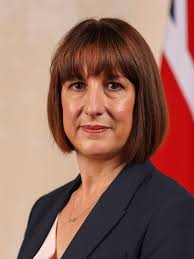Rachel Reeves: A Key Figure in British Political Landscape

Introduction
Rachel Reeves, the shadow chancellor of the Exchequer, has become one of the most prominent figures in British politics. As a member of the Labour Party, she has played a critical role in shaping economic policy and responding to the challenges posed by the current government. Her rise to prominence comes at a crucial time when economic stability and recovery are at the forefront of national issues, making her a figure of great interest and relevance to the public.
Background and Political Journey
Born on February 15, 1979, in Lewisham, London, Reeves has an academic background with degrees from both the University of Oxford and the London School of Economics. Before entering Parliament, she worked as an economist at the Bank of England and served as director of the social policy at the Institute for Public Policy Research. These experiences laid the foundation for her political career, which began when she was elected as the MP for Leeds West in 2010.
Since entering Parliament, Reeves has been an advocate for economic justice, workers’ rights, and social change. In 2020, she was appointed as shadow chancellor, succeeding Anneliese Dodds, where she was quick to outline her vision for the economy.
Recent Developments and Initiatives
In recent months, Reeves has been vocal about the economic challenges facing the UK, particularly in light of the lingering impacts of the COVID-19 pandemic and the cost-of-living crisis. Her proposals, including plans to invest in green jobs and improve infrastructure, have been aimed at driving growth and ensuring a fair recovery. During a recent speech, she detailed a strategy to tackle inflation while supporting working families and businesses, demonstrating her commitment to making economic policy accessible and beneficial for all.
Reeves has also been an active participant in Labour’s outreach efforts, aiming to engage with communities across the country. She has highlighted the importance of listening to constituents and using their insights to inform policy decisions. Her efforts have reportedly strengthened Labour’s presence in areas previously seen as strongholds for rival parties, making her a key figure in potential electoral successes.
Conclusion
Rachel Reeves is undeniably becoming a significant player in British politics as the country navigates economic challenges and prepares for future elections. Her focus on pragmatic solutions, driven by her economic expertise, positions her as a leader capable of rebuilding public trust in political institutions. As she continues to shape Labour’s economic narrative, voters may find a fresh vision and hope for recovery amidst financial uncertainties. Analysts predict that Reeves’ influence will only grow as the Parliament sessions progress, making her a figure to watch closely in the upcoming years.









